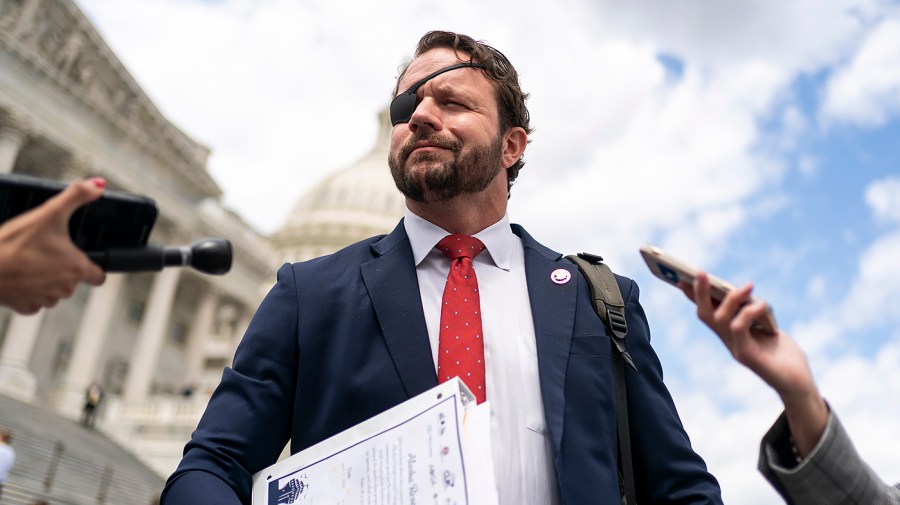Rep. Dan Crenshaw Urges Tougher European Stance on Russia
Republican Congressman Dan Crenshaw of Texas has called for European nations to take a more assertive approach in countering Russia’s actions in Ukraine. Speaking at the Munich Security Conference, Crenshaw argued that European leaders need to be “uncomfortably aggressive” in their dealings with Russian President Vladimir Putin.
Key Points:
Crenshaw wants Europe to “demand a seat at the table” in Ukraine peace talks by demonstrating a stronger stance against Russia.
He suggests European countries should double or triple their aid to Ukraine compared to U.S. levels.
The congressman proposes that European nations should consider deploying troops on the ground in Ukraine.
Crenshaw argues this aggressive posture would give U.S. negotiators more leverage in potential peace talks.
Background and Context:
This call for a tougher European stance comes amid ongoing discussions about potential peace negotiations to end the conflict in Ukraine. Recent developments include:
President Donald Trump’s announcement of plans to negotiate with Putin, which has caused concern among some European allies.
Defense Secretary Pete Hegseth’s controversial comments suggesting Ukraine’s pre-2014 borders may be “unrealistic” to reclaim.
Debates over Ukraine’s potential NATO membership and long-term security arrangements.
Different Perspectives:
While Crenshaw argues for a more aggressive European approach, other viewpoints exist:
Some European leaders have expressed alarm at being potentially sidelined in peace negotiations.
There are concerns about escalating the conflict or provoking further Russian aggression.
Questions remain about the feasibility and implications of increased European military involvement.
Public Opinion:
Recent polling shows Americans remain divided on Ukraine policy, largely along party lines:
30% of American adults believe the U.S. is providing too much support to Ukraine.
22% say the U.S. is not providing enough support.
Republicans are more likely to say the U.S. is giving too much support (47% vs. 14% of Democrats).
Potential Implications:
Crenshaw’s proposals, if adopted, could lead to:
Increased tensions between NATO and Russia
A shift in the balance of power within the Western alliance
Potentially altered dynamics in peace negotiations
Debates over the role and autonomy of European defense policy
The congressman’s statements highlight ongoing discussions about burden-sharing within NATO and the appropriate level of European involvement in addressing the Ukraine conflict. As peace talks potentially approach, these debates are likely to intensify among Western allies.









